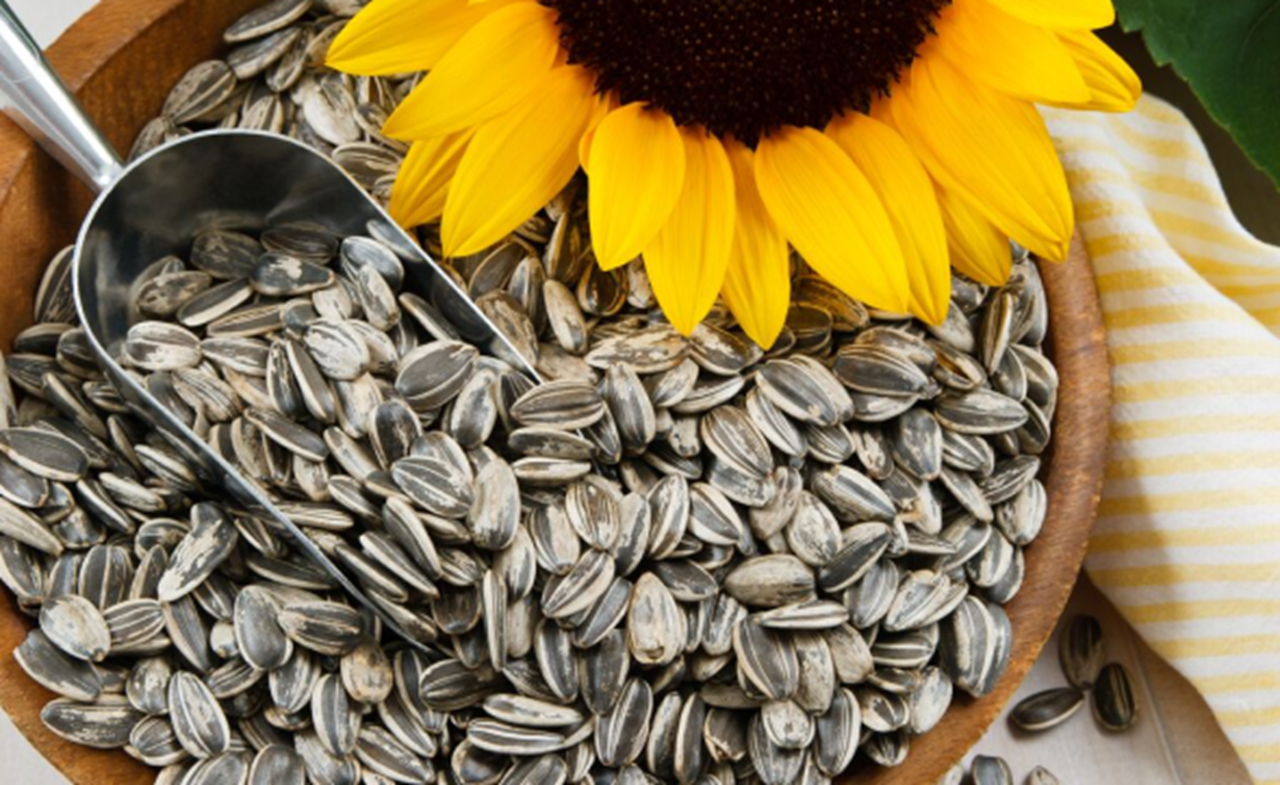Responsible and sustainable sourcing
At Upfield we know that people care deeply about the provenance of their food, and want to know that ingredients are grown in a way that respects the planet and those involved in the process. We have established a robust programme of sustainable and responsible sourcing to enable consumers to make ethical, considered choices. As a manufacturer, our suppliers have to meet our policies and standards, which set out how we work together with our partners to ensure these ingredients meet the expectations and demands of our consumers. This helps strengthen our food supply chains to ensure they are resilient and robust , so customers can be confident that we will continue to deliver.
The key topics
We are aware of environmental and social impacts, particularly in the value chains of our ingredients, and work with our partners, including suppliers and NGOs to ensure we assess and address these issues in a prioritized way. Responsible sourcing is also connected to our wider ESG commitments including our programmes to support farmer livelihoods and our carbon emissions reduction plans.
Deforestation, conversion and environmental impact
We know that growing, harvesting and processing all crops has an impact on the planet, in terms of changing land use, the risk of deforestation and damage to biodiversity, and the materials used to improve yields and their impact on water quality. We are committed to ensuring no deforestation or conversion and to address these impacts. See how below.
Ethical standards
Our farmers are essential stewards of the land and we recognise their valuable contribution to growing the food we need. We work with hundreds of suppliers of ingredient, good and services , through our Responsible Sourcing programme we seek to ensure the meet the standards we expect. See our Code of Conduct for Suppliers
Human rights and labour standards
Some of our supply chains can be long and complex, and that it can be a challenge to have full visibility and awareness of everyone who works along them, and the conditions within which they work. We are committed to ensuring no exploitation in our supply chains and to respecting human rights in our operations and supply chains. See our Human Rights Policy.
How we address these issues
From traceability to due diligence, our Procurement and Responsible Sourcing teams work to ensure we put our policies and principles into action. Here are examples of what we do to ensure we responsibly source our key ingredients.
-
Responsible Sourcing PoliciesFrom our ingredient-specific policies to our Responsible Supplier Code of Conduct, we set out what we expect from our suppliers and have the processes and systems in place to ensure that they meet our standards.
-
TraceabilityIt is really important that we know where our ingredients come from – be it a farm, mill or landscape – and we are working to continuously improve traceability across our supply chains. This helps us to take appropriate and targeted decisions.
-
CertificationWe have robust monitoring processes in place to ensure we can identify and address issues that might be raised. From satellite monitoring, to our issues identification and grievance management process, we seek to address issues raised in a timely and transparent way, whether from suppliers, partners or through our Speak Up process.
-
MonitoringWe have robust monitoring processes in place to ensure we can identify and address issues that might be raised. From satellite monitoring to our issues identification and grievance management process we seek to address issues raised in timely and transparent way, whether from suppliers, partners or through our Speak Up process.
-
Supplier EngagementWe actively engage and collaborate with our suppliers, both on policy compliance, to ensure our standards are met, and through our due diligence processes. We use Sedex, for example, which is an ethical sourcing assessment to help us understand, prioritise and address sourcing risk. Through key projects and partnerships, we work with valued suppliers to help transform our supply chains.
-
TransparencyPublic reporting on progress is important, and Upfield seeks to share how we are progressing and meeting our targets in our Annual Report and other disclosures, for example CDP. We also share the list of the origins of our key ingredients, and our grievance tracker helps enable change in the food system.
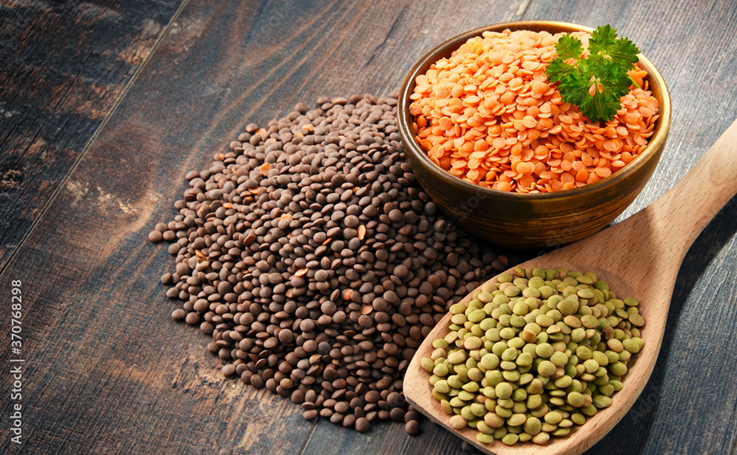
We are at the forefront of the future of food, shaping and creating how we will eat in the future, today. Beyond the diverse range of more traditional plant-based oils that have been on our tables for generations, we are passionate about finding new, tasty ways to make ingredients that are even better for you and for the planet. From the next generation of plant proteins to the future innovations that will replace the need for animal agriculture altogether:
- A focus of investment We have invested in innovation – with a state-of-the-art R&D centre in the Dutch town of Wageningen, the world’s leading centre for food research and development. With partnerships with the university in the town, we will help the most innovative start-ups and researchers commercialise and scale up their research.
- Precision fermentation We have access to the latest methods in precision fermentation with our partners at Change Foods, who use the technique to create proteins usually derived from animals. This knowledge will enable us to create plant-based cheeses that melt, stretch and crumble in the same way as dairy cheeses, without the involvement of animals.
- Plant proteins We are already using plant proteins such as pea, fava and lentils in our products, incorporating fava beans in our Violife cheese and lentil protein in our plant-based Elmlea cream. These legumes are also critical for soil health and pave the way for a new way of eating which is beneficial for human health, and that of the planet.

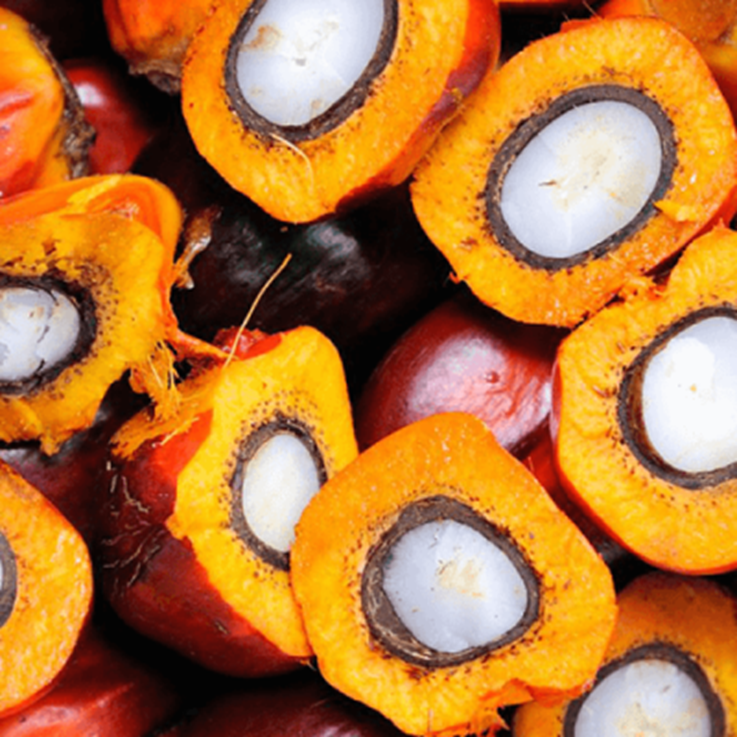
Palm oil is a high yielding crop with great taste, texture and flavour which is widely used in the food industry because of these positive properties. It does come with challenges but, when produced in a sustainable way, it has the potential to support smallholders and communities and to reduce the pressure on forests and natural ecosystems. Since its creation, Upfield is using a combination of tools to improve transparency in its supply chain, address deforestation risks and mapped any other issues. Upfield collaborates closely with its suppliers and independent organisations to improve our understanding of the main risks and be able to deploy adapted responses to it
- Policy We have established a benchmarked policy to implement the highest standards of palm oil purchase and use. We are committed to only using 100% certified palm oil and palm kernel oil (segregated or mass balance) and we adhere to the key principles of NDPE (no deforestation, development on peat or exploitation) . See our Palm Oil Policy here
- Certification Since 2019, Upfield has been sourcing 100% RSPO certified palm oil and palm kernel oil (segregated or mass balance) to be used across our factories worldwide. We recognise that certification alone is not enough to ensure our standards are met that is why we go beyond with our focus on traceability, monitoring and collaborations.
- Traceability Traceability to mill and plantation level is very important to increase transparency in the Palm Industry and to be able to verify compliance. We can already trace to mill level and we are working closely with our suppliers to constantly improve tracebility to plantation level. This is key to achieving our no-deforestation commitments and to effectively account for land use change in our climate footprint. See our Palm Oil Mill List here.
- Monitoring We have both proactive and reactive monitoring processes in place for sustainable palm oil. These include our partnership with Earthworm Foundation and Airbus, using Starling, a satellite monitoring system which helps us to identify any deforestation alerts in palm origins. Those alerts are then investigated and addressed as per our policy and grievance process, See our Grievance Tracker here.
- Collaboration & Engagement We work with our direct suppliers to improve transparency and address issues that arise along the supply chain. Through collaboration we believe we can continue to help transform the sector. Upfield is a member of Roundtable on Sustainable Palm Oil as well as the Consumer Goods Forum working group Human Rights in Palm Oil Supply Chains.
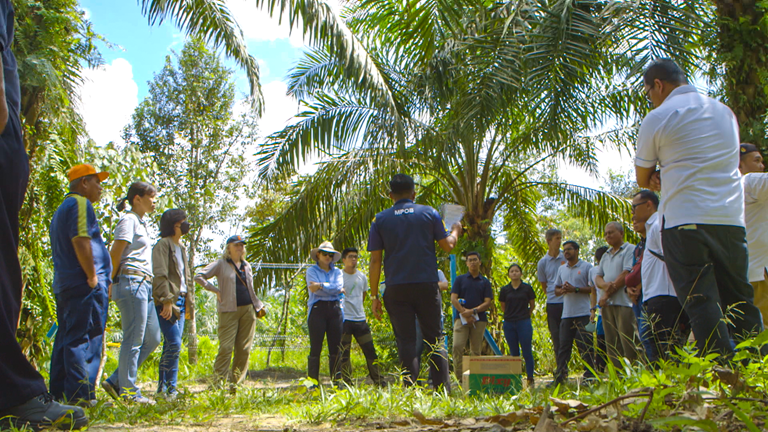
In 2023, Upfield joined a landscape project located in South Malaysia and led by Earthworm.
The vision of the Southern CFS Landscape is to create a sustainable landscape model to demonstrate the business case of balancing sustainable production, forest conservation, resilient livelihoods, and good labour practices at scale. The landscape focal area is 1,631,842ha, with 35% of forest. The key targets are to engage with local communities, local authorities and Palm oil plantations to protect the natural ecosystem and biodiversity of the landscape and also to address human and labour rights at plantations and mills, who are overly reliant on foreign workers, identified as a vulnerable group.

Coconut oil is a key ingredient for many of Upfield’s brands, bringing texture and form to brands like Flora Plant Butter. It is also used across much of our Violife range of plant-based cheeses - everything from our Epic Mature Cheddar flavoured block, to our delicious crumbly Greek White.
100% traceability to country
- Policy Most coconut farming happens on farms managed by small-holders and families, providing them and their communities with a livelihood and source of income. We aim to improve farmers livelihoods in the producing areas and have a strict policy not to permit child labour in farms and preventing any animal abuse.
- Traceability We are able to trace our coconut back to the level of the country from which it was sourced and are now working with our suppliers and partners to improve the level of traceability to landscape in the coming years.
- Certification We are a member of the Sustainability Coconut partnership and adherent to the Coconut charter. This multi-stakeholder platform aims to drive positive impact for farmers’ livelihoods by establishing industry-wide best practices and impact programmes.


Soy is widely used as an oil crop, due in part to its health benefits. It is used in a variety of our brands, particularly in North America. In the United States it is very much a locally sourced crop incorporated into local brands - more than 90% is bought in the US for family brands such as Country Crock. It is grown in Iowa and Kansas, mostly within 200km from our factory in the heart of Kansas. Upfield will not contribute to any new deforestation in its soy supply chain and will comply with the Amazon Soy Moratorium. We will not contribute to any new deforestation or conversion of natural ecosystems, and no land clearance by burning or clear-cutting in our soy supply chain. See our Soy Policy here
- Traceability Traceability is key to understanding the potential issues in our supply chain and we will adapt our approach according to the risks identified. At Upfield, more than 90% of our soybean oil originated from low-risk origins (North America, Europe). This allows us to focus our resources on higher risk landscapes.
- Monitoring Our monitoring programme covers all ingredients, including soy. We have a stronger level of due diligence and traceability requirements for soybean products coming from origins with a higher risk of being linked to deforestation and human rights abuses.


Shea oil is a rich fat extracted from the nut of the African shea tree, which grows across a stretch of land from Senegal in West Africa to Sudan in the East, and the foothills of the Ethiopian highlands. The oil is used especially in some of our products for the West African market, including the Blue Band range of products.
- Policy
- Collaboration
We recognise the potential safety, labour, environmental and economic risks associated with shea nut oil collection and processing and are committed to address them.
Our position on shea is guided by the priorities laid out by the Global Shea Alliance, a multi-stakeholder platform. We are also partnering with suppliers and local players to support women’s groups, improve safety and restore biodiversity in Northern Ghana
7,800+ trees planted
1,000 women supported by warehouse built
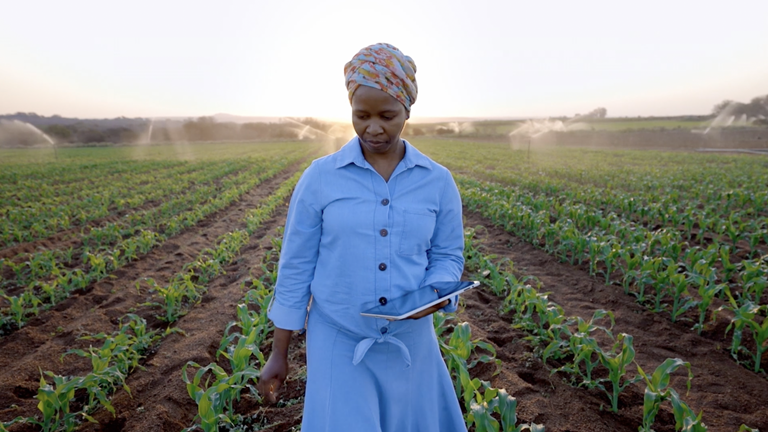
Through our Shea Sustainability Initiative in West Africa, we aim to support the restoration of 150 hectares of savannah parkland in North Eastern Ghana, working with local partners and a newly created cooperative of around 1,000 female shea nut collectors. The engagement with local communities and especially vulnerable groups (women) enables them to make a profitable income from the project.
We are contributing to the replanting of the natural ecosystem, consisting of a mix of Shea bush and 20+ indigenous species of tree. Our partnership with Ecorestore means we go beyond just planting trees, but ensures the new trees are properly maintained to avoid the short-term pitfall of ‘only trees planted’. So far, the project has planted over 7,800 trees and provided financial literacy and health and safety training to 1,000 women. To help the cooperative work at scale the project has offered pre-financing and seen a warehouse constructed to aggregate and store the Shea nuts. To help the women work safely, we have also provided them with PPE, including goggles, gloves, torches and first aid kits.
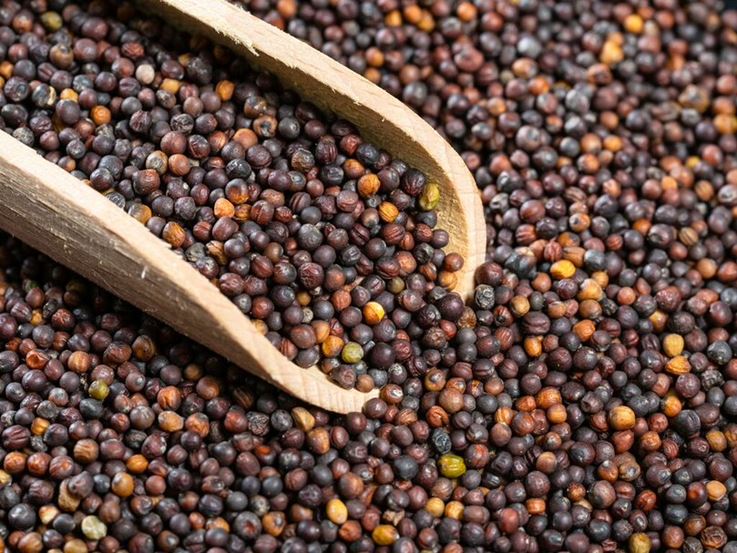
We seek to use a diverse number of oils and ingredients across our recipes. These oils and all our other ingredients are covered by our Supplier Code of Conduct. These include: sunflower, rapeseed, linseed and olive.
When possible we source these oils close to the factories where our products are made. We have also developed some partnerships to strengthen sustainable supply chains locally and to reduce the GHG emissions from these crops.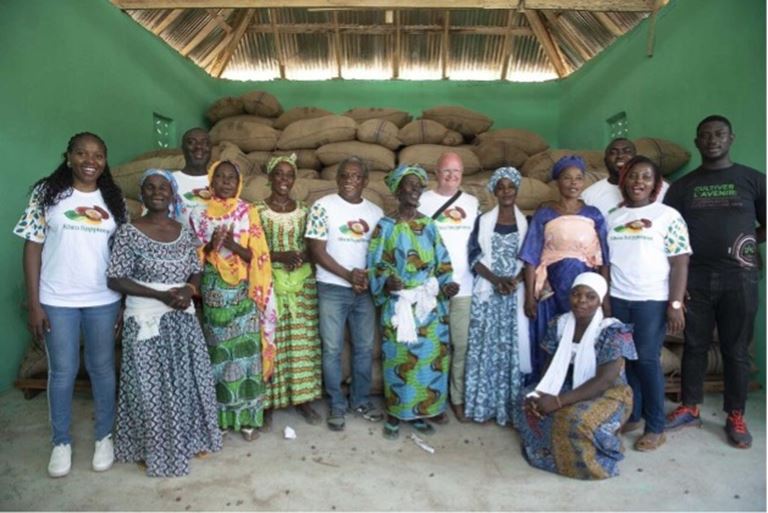
In Kenya, Upfield is partnering with a company called Agventure Ltd to grow canola in the foothills of Mount Kenya, to use within Upfield’s Blue Band range of products. Canola is low in saturated fat and high in mono unsaturated fats with significant levels of Omega-3 and 6, as well as phytosterols that can help reduce cholesterol levels. Some 7,500 farmers are involved in the project which also benefits soil health and quality.
Our other pillars
Plant based
GOAL: 1 billion people choose our delicious plant-based products.
Healthier lives
Goal: 200 million lives positively impacted with access to affordable and healthy nutrition.
Better planet
GOAL: Pioneer food that's better for the planet. Showcase our plant-based benefits while reducing our own footprint.

